2.5 Learning Type CEUs
Navigating the Changes in the Field: 10 Trends Transforming ABA
The ABA Landscape is Shifting – Are You Ready?
Save $20!
SAVE $20 FOR A LIMITED TIME!
The ABA Landscape is Shifting – Are You Ready?
Save $20!
Instructor: Amelia Dalphonse, MA, BCBA
Amelia Dalphonse, MA, BCBA, co-founded Master ABA with her twin sister, Dianna Kelly, bringing over 13 years of expertise in Applied Behavior Analysis (ABA). Passionate about prioritizing client needs, Amelia earned a Master’s degree in ABA and became a Board Certified Behavior Analyst (BCBA).
At Master ABA, Amelia and Dianna lead with innovation, emphasizing client-centered care to drive meaningful change. As an ACE provider, they’ve established the institution as a hub for progressive ABA practices, inspiring others to adopt compassionate and ethical approaches.
Through her role at Master ABA, Amelia advocates for advancing the ABA field with empathy and integrity. She stays abreast of the latest research, continuously seeking opportunities for professional growth.
Amelia’s leadership and dedication continue to shape the ABA community, empowering practitioners to prioritize client well-being. Together with her sister, she envisions a future where ethical values drive positive change in ABA practices.

Why is Navigating the Changes in the Field: 10 Trends Transforming ABA important?

ABA is abuse!
I’d just started Accessible ABA when I decided to offer help on a Reddit thread. The topic was neutral, and I thought I had a useful perspective. But the response I got shocked me: “If you’re in ABA, you’re an abuser. You shouldn’t give advice, you should leave the field.” That single message almost made me shut everything down.
Since then I’ve talked to many autistics who sincerely consider ABA to be abuse. These discussions have led me to make changes in my own practice, but changes are needed on a bigger scale, throughout the field, to align with what we know and understand now.
The traditional methods that some of us learned are being rightfully challenged with calls for more empathy, respect for neurodiversity, and prioritizing the individual needs of our clients. The field of ABA is undergoing a transformation to meet these new demands. This evolution brings new possibilities for better, more effective, and more compassionate support for clients. However, this change is also being met with resistance.
By embracing the needed changes, we can proactively move the field of ABA in a positive direction.
What’s Included with Navigating the Changes in the Field: 10 Trends Transforming ABA?

Act now, and you can get Navigating the Changes in the Field: 10 Trends Transforming ABA – plus get these exclusive bonuses!

Don’t Let Change Become an Obstacle
BCBAs who fail to adapt risk falling behind. This course transforms potential disruptors into catalysts for your professional growth. Proactive learning is not optional – it’s the key to delivering the best possible care to your clients and building a fulfilling, successful career.

Course Trends Include:
Secure Your Spot and Embrace the Future of ABA!
Frequently Asked Questions
How is the training different from a regular CEU course?
Will I get a certificate of completion?
How many CEUs do I earn by completing the training?
How long do I have to complete the training?
This website uses cookies to provide you with the best experience possible. By continuing, you agree to the terms of our cookie policy.
Let me know about the next cohort for Your First Steps to Freedom!
Feel free to download these instructions to keep as you walk through the process.
Before you enroll in a Game Plan, the Game Plan section of the Dashboard will show you this:
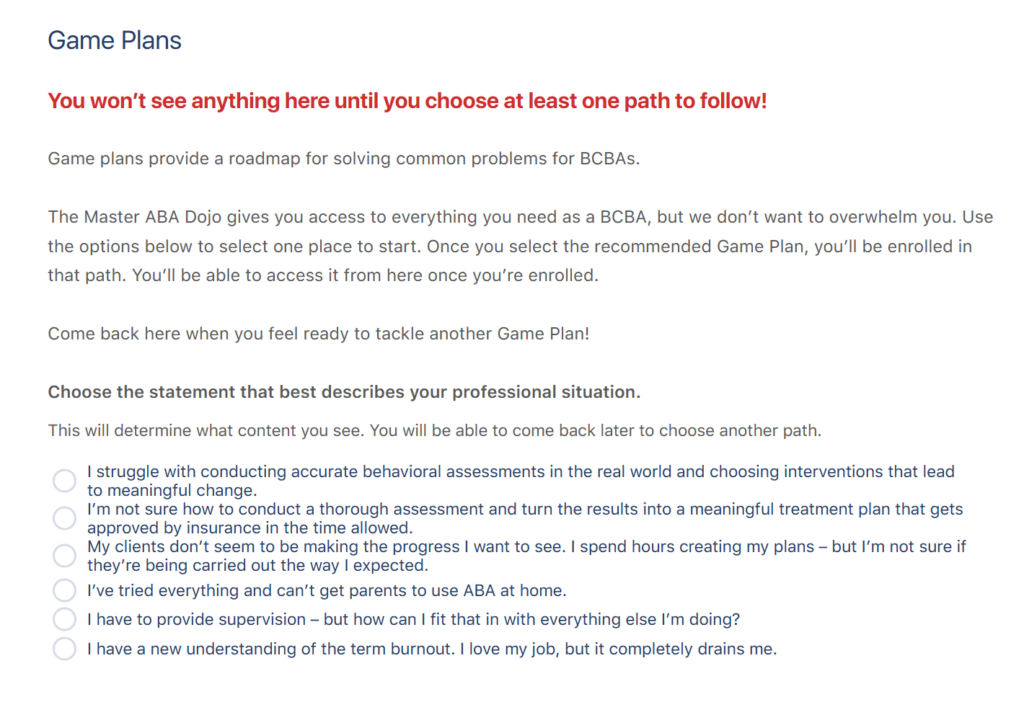
When you click on one of the 6 statements, you’ll see a button for the related Game Plan. Click on the Game Plan name:
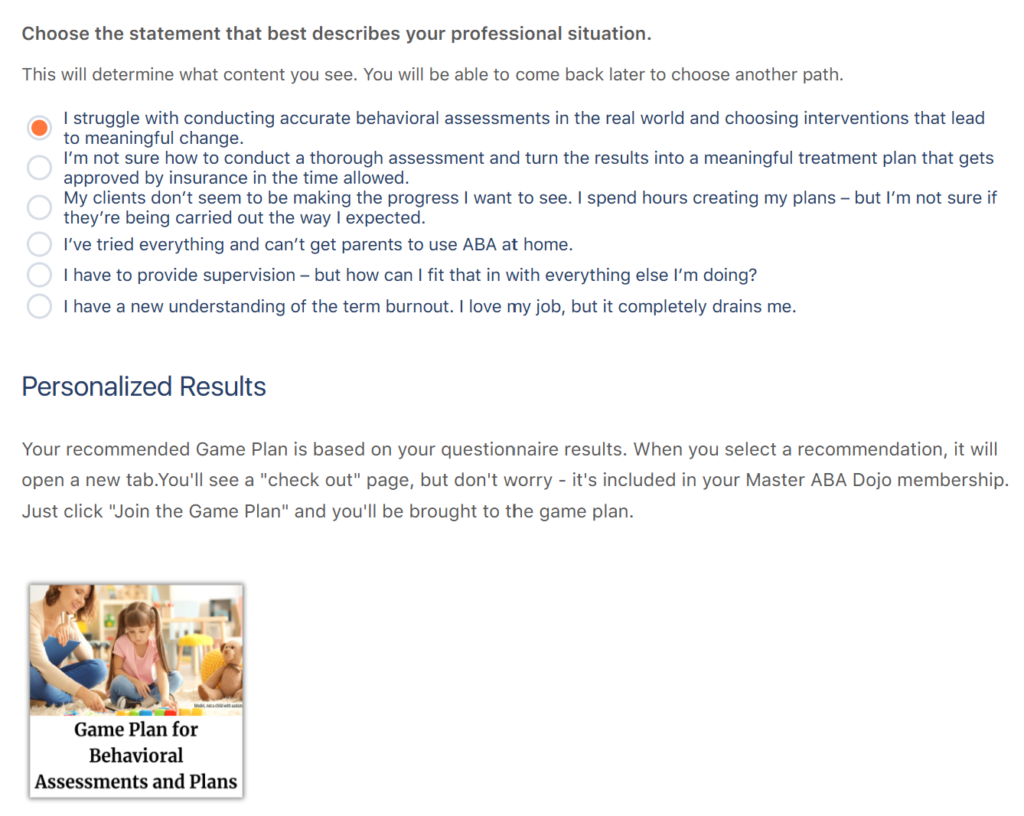
You’ll be brought to the enrollment page. You must click the checkbox for the terms and conditions – these are the same you agreed to when joining the membership.
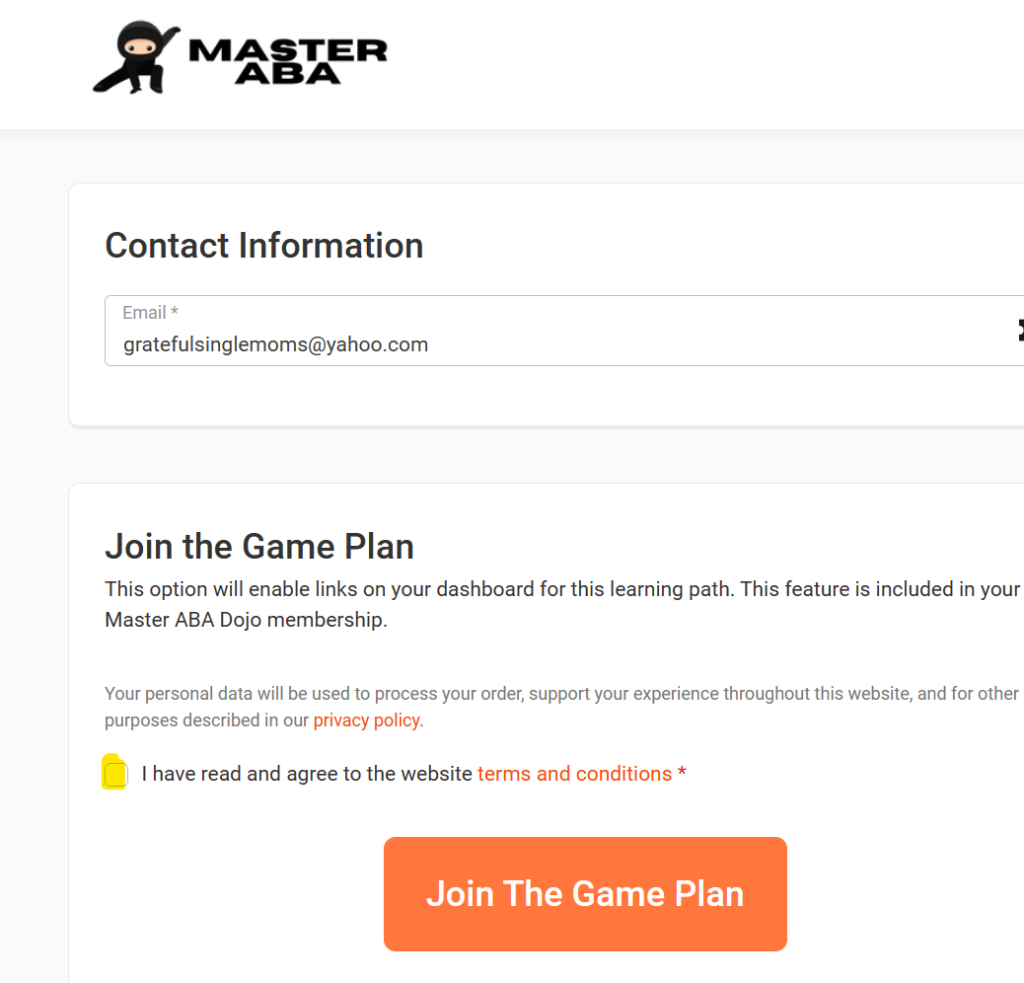
You’ll be brought to the Game Plan page. Here you can complete a self-assessment to identify relevant strengths and weaknesses. You can then complete related courses. At the bottom of the Game Plan page, you’ll also find related resources such as guides, templates and checklists:
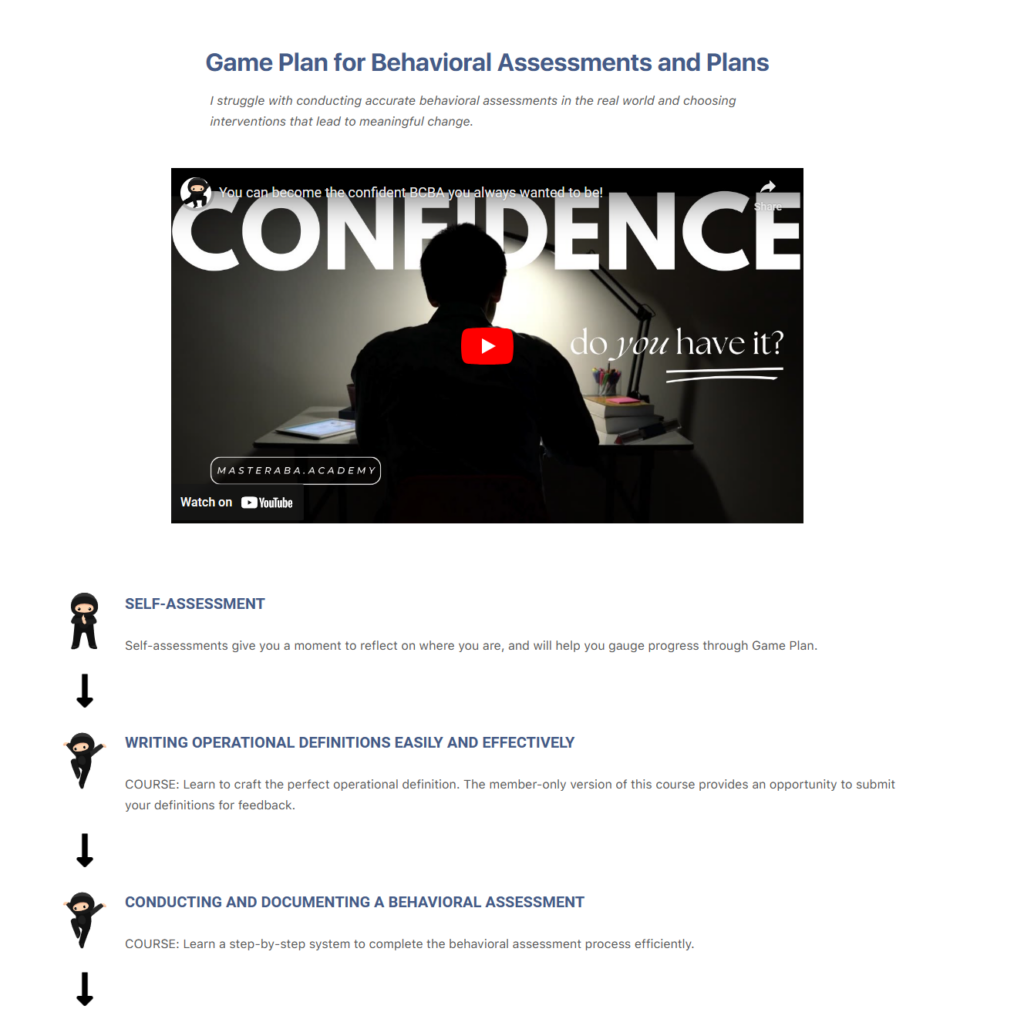
When you navigate back to the dashboard, you’ll have an option to add a new Game Plan (we recommend you go through your first Game Plan before adding more). When you click the button, you’ll get a pop up with the same 6 questions. Choose a different response to add a different Game Plan.
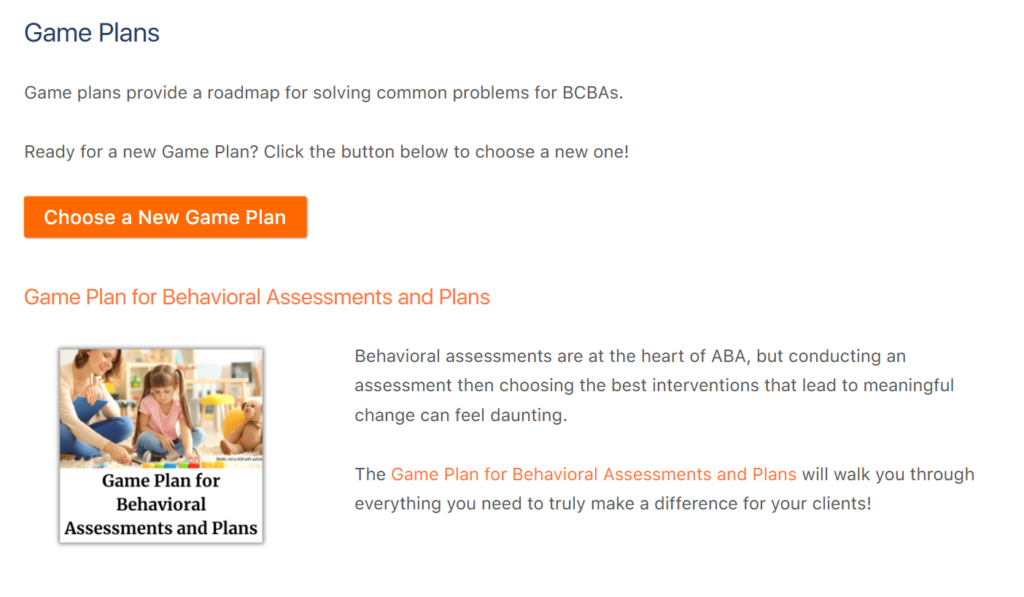
You must be logged in to access the Member Onboarding features.
1. Collapse the left hand navigation panel to create more space on the page:
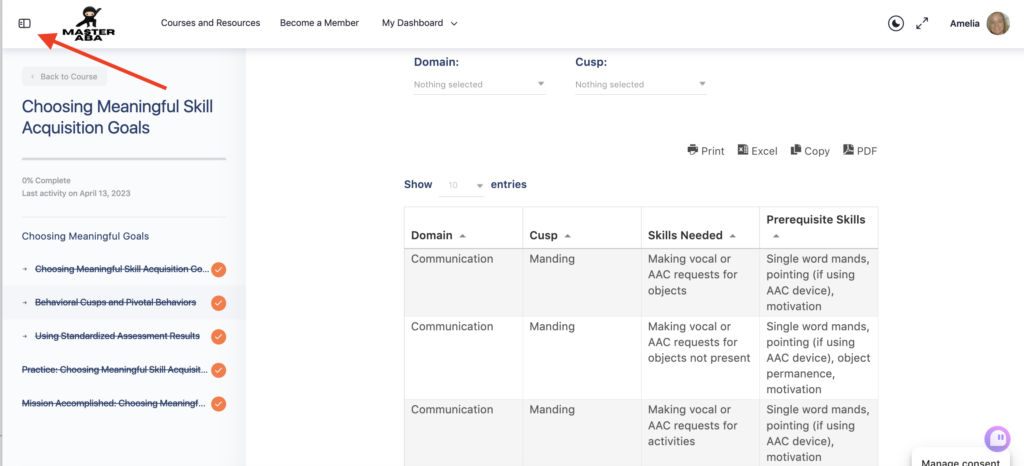
2. Use the filters to limit the number of rows in the table:
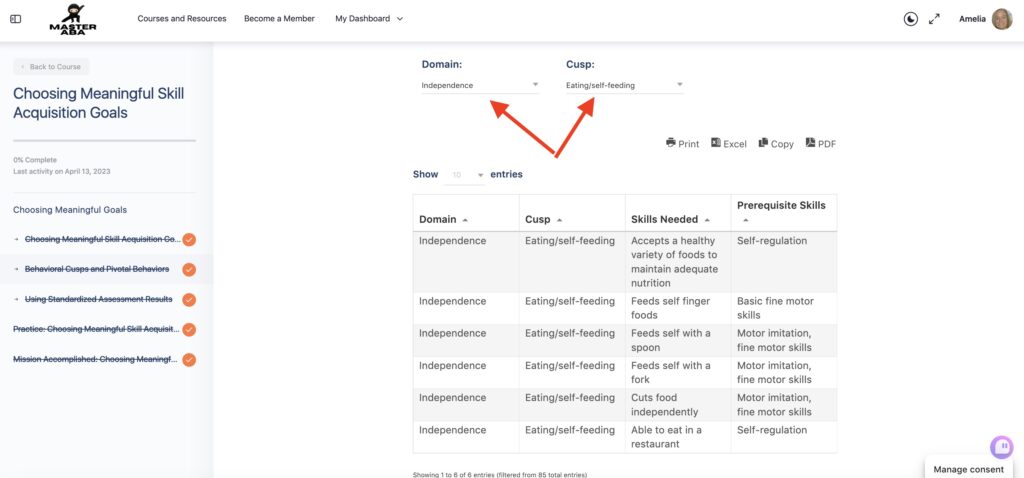
3. Export the table to either PDF or Excel to save the results:
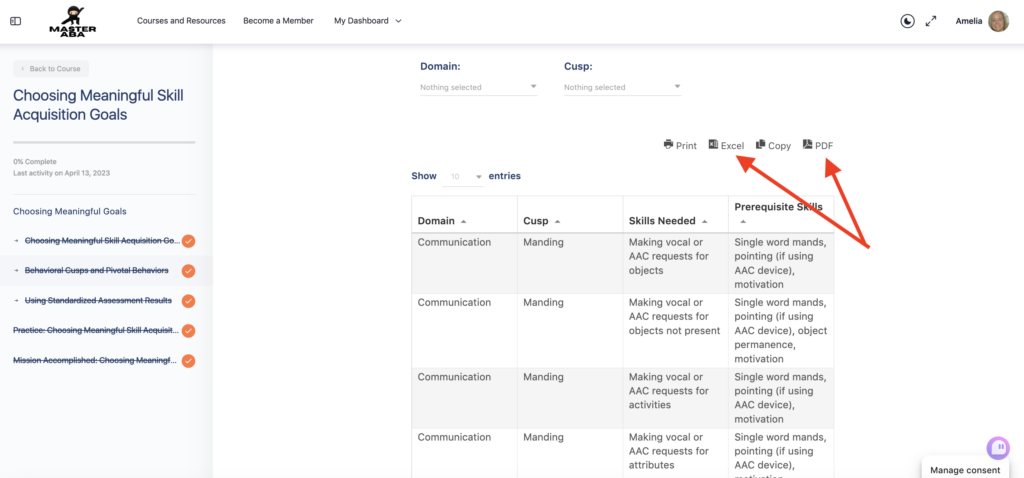
Selecting Orders or Edit My Account will bring you to a new page. Click the Home icon in the top left to return to My Dashboard.
There was a problem reporting this post.
Please confirm you want to block this member.
You will no longer be able to:
Please note: This action will also remove this member from your connections and send a report to the site admin. Please allow a few minutes for this process to complete.